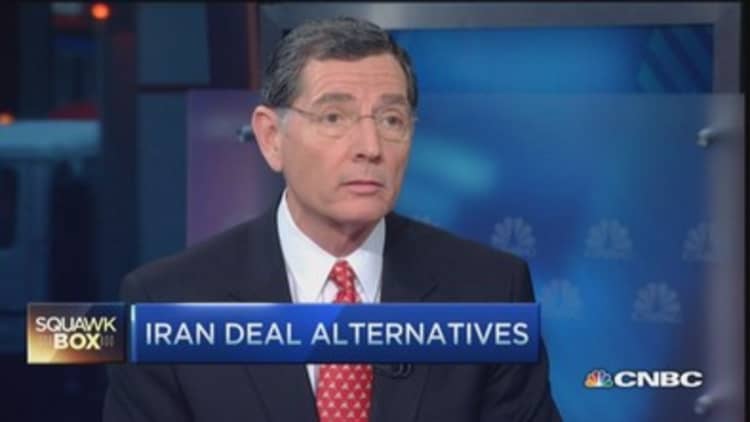
Officials and pundits have repeatedly emphasized that the devil is in the details for an Iran nuclear deal, but there may also be demons in the basics.
Key disagreements about what's been decided have emerged since diplomats announced a framework deal on April 2, and not just between the U.S. and Iran, but also between Western powers. Fact sheets distributed by various governments show discrepancies in key areas. (Tweet this)
Why this may have happened
There are two possible reasons that the discrepancies have occurred.
It's possible that the various sides are trying to use their version of the framework to gain leverage for future negotiations, said Blaise Misztal, the Bipartisan Policy Center's director of foreign policy. Alternately, there could just be some confusion among the diplomats who worked late into the night to reach a deal.
"It's more likely that under the pressure of the self-imposed deadline, there was such a rush to get something out, that it wasn't necessarily fully and well negotiated," Misztal explained.
If it were simply the case that the U.S. and Iran described their concessions differently, Misztal said he would conclude it was all about bargaining, but the fact that a French document also differs implies "there is some element of just rushing and getting things wrong."
Read More Economics make Iran nuclear deal unenforceable
U.S. officials have implied in the days since the framework was announced that they anticipated some different conclusions between parties, but Misztal characterized that as poor diplomacy.
"I'm not sure why you would agree to an agreement that you don't think both sides have the same understanding of," he said.
Where the versions differ specifically
Two of the biggest areas of disagreement are what's going to happen to Iran's current stockpile of low-enriched uranium (LEU), and when sanctions are going to be lifted.
While U.S. officials said that Iran agreed to reduce its LEU stores from 9,000 to 300 kilograms, and that it will not convert those resources to fuel, Tehran has specifically said that it can use the existing stockpile to build something the Iranian fact sheet calls a "nuclear fuel center." That may be a reference to a nuclear fuel production facility Iran first proposed in 2006.
As for sanctions, the U.S. has insisted that it will drop nuclear-related penalties on Iran only when it has evidence that the Islamic Republic has addressed "key" parts of the deal. Iranian leaders, meanwhile, said they require all Western sanctions removed as soon as the deal is signed.
Read More Iran nuclear deal: These industries could get a boost
"We will not sign any deal unless all sanctions are lifted on the same day.... We want a win-win deal for all parties involved in the nuclear talks," Iranian President Hassan Rouhani said in a televised speech on Thursday.
Iran's Supreme Leader Ayatollah Ali Khamenei reportedly took a more combative tone in a Thursday address, suggesting that the fact sheet discrepancies could be a tactic from the "devilish" American government.
"Americans put out a statement just a few hours after our negotiators finished their talks ... this statement, which they called a 'fact sheet,' was wrong on most of the issues," Khamenei said, according to Reuters.

Reports from France indicate that officials in Paris also have a different understanding of what was decided in the talks. Those differences include how Iran will be monitored and what kinds of research and development will be allowed at advanced centrifuges, according to the Bipartisan Policy Center.
Reporting from The Times of Israel also indicates that France disagrees with the U.S. on the timing of sanctions.
Read More Obama: Iran deal would make our world safer
Some discrepancies may just be a matter of semantics, Misztal said, citing U.S.'s stating that the limits on the Iranian enrichment program will last 15 years, while Tehran is saying the agreement was for 10 years. American officials have already indicated that the situation could begin changing between year 10 and year 15, so the specifics on that point are not essential to an understanding of the deal, he said.
A deadline for reaching the final agreement is June 30. Iran, the United States, Germany, France, Britain, Russia and China are expected to meet in the coming days to discuss the deal.
—Reuters contributed to this report.


